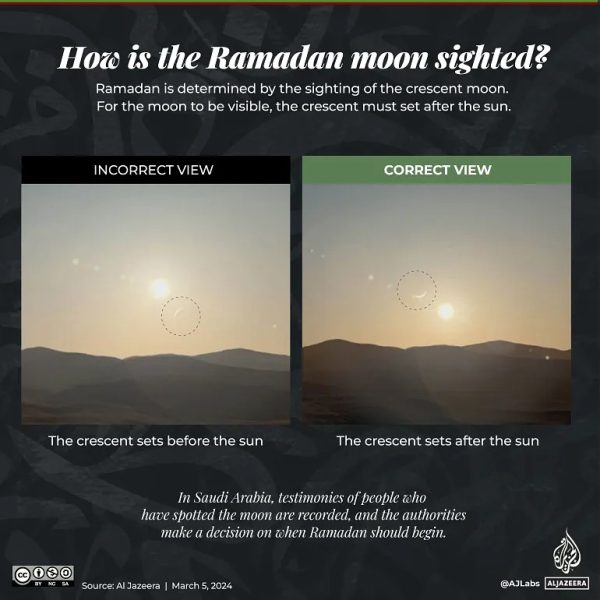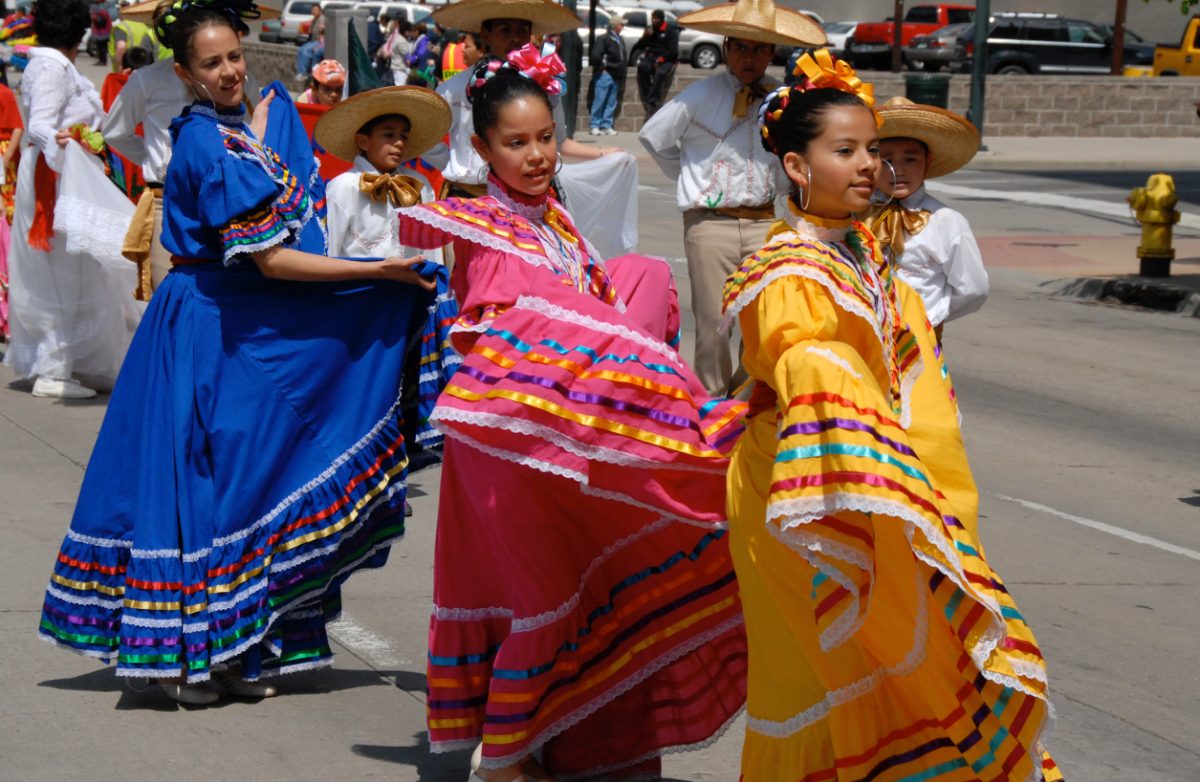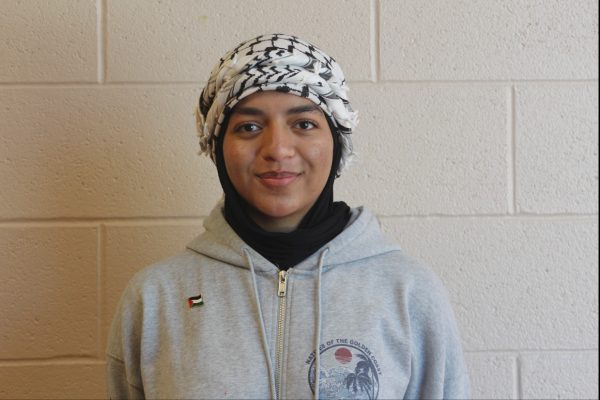As Ramadan is coming to an end, many Muslims are eager to hear news about when Eid Al-Fitr is.
Eid is the holiday after Ramadan celebrating a month of fasting, charity, and self improvement. Even though it is one of the two biggest holidays in Islam, the day of the holiday is unknown until a few days before.
Why is this?
Muslims rely on the lunar calendar or what they call the Hijri calendar. They follow the Hijri calendar as it is commanded by them in the Quran, “… So whoever among you sights (the crescent on the first night of) the month (of Ramadan), he must observe sawm (fast) that month…” [al-Baqarah 2:185]. Muslims declare it a new month when a crescent moon is spotted. The crescent must set after the sun and it needs to be unanimously agreed upon by fuqaha (jurists with knowledge of Islamic law) that the moon was spotted. The spotting is announced by local Islamic scholars or Mosques.

According to the lunar calendar, a year is 354 days as opposed to 365 days. This means that there is no set season for each month like it is in the solar/Gregorian calendar. This eleven day difference causes Ramadan to fall 11 days earlier each year. Muslims see this as a benefit because if they followed the solar calendar making Ramadan fall on the same season every year it would seem redundant. This is because it would cause some countries to only observe the month of Ramadan and fast in the winter/fall, when days are shorter while others would have it in the summer/spring when days are longer.
Not only does the moon dictate when the month starts and ends, but also the days as well. The day for Muslims starts at a different time than it does for those who depend on the sun. Muslims have five prayers a day; the fourth prayer, Maghreb also known as the sunset prayer, marks the commencement of the new day. This is also the time at which Muslims break their fasts.
Recently, it has been declared that Eid will be on Wednesday (4/10) bringing Ramadan to an end at Maghreb on Tuesday (4/9).









